And just like that, 2016 is up. Gone. Over. Finished. History. It’s December, and while many of us are glad to see the back of this legend-killing year, Cinema has somewhat flourished — which only makes sense, given that humanity collectively turns to arts and expression when the world is burning.
Let’s get down straight to it, then. After having watched around around 10 Hindi films a month on an average, here is our list — segregated in dubious and not-so-dubious award categories — of the best and worst of 2016, much like last year’s immensely popular piece.
As awards’ parlance goes: The second edition here is bigger, more expansive (not really) and better (sort of) than ever!
Here we go. And don’t panic if you haven’t heard of some of these names. That’s the point.
[Note: We won’t be including the likes of Sairat, Thithi and Visaranai for consideration, as they fall under the larger umbrella of ‘Indian Films’ for the year. So let me put it out there: Sairat is the best and most startling movie-experience we’ve had in a very long time. And perhaps our out-and-out favourite film of 2016, too]
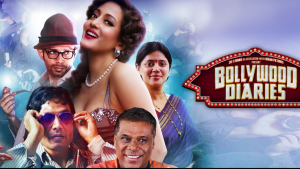 Best Film Nobody Saw: BOLLYWOOD DIARIES
Best Film Nobody Saw: BOLLYWOOD DIARIES
All roads lead to Mumbai. Easily the most pleasant cinematic surprise of the year, this film — directed by K.D. Sathyam (writer, Gattu) — is a powerful, impassioned experience with one of the better soundtracks (and playback songs: Manwa Behrupiya, Titli, Mann ka Mirga) of the year. It explores the dark side of Bollywood aspirations, “strugglers” as we call them, by intercutting between three unrelated (yet all too tragic) pan-India stories: Rohit (debutant and producer Salim Diwan), a Delhi IT professional who participates in an acting reality show; Vishnu (Ashish Vidyarthi), a Bhilai-based government servant who is on the verge of leaving it all to pursue “middle-aged” character roles in Mumbai; and Imli (Raima Sen), a prostitute in Kolkata who befriends an assistant director (Vineet Singh) to take forward her Mumbai dreams. Not a perfect movie, fairly long and indulgent, but an unpretentious, well-acted and memorable one.
Best Film That Will Never Win An Award: JUGNI
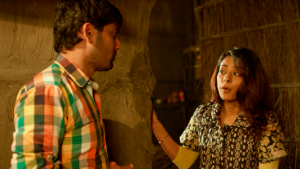 Another sort-of Bollywood aspirational story, but with music as the primary device and centre piece. Shefali Bhushan, a former music producer herself, puts together a raw and throbbing story of a city girl (Sugandha Garg) riding the coattails of a little-known Punjabi folk singer (Siddhant Behl). Of course, there’s a traditional urban-rural love story at its core; but the slightly inconsistently made Jugni (literal translation: female firefly) is really about two souls finding themselves and each other through music. And it also has the rare distinction of being able to show a flawed, flaky and fiercely ambitious Bombay girl for who she is, instead of who we (men would like to see. Infectious film, with perceptive lead performances.
Another sort-of Bollywood aspirational story, but with music as the primary device and centre piece. Shefali Bhushan, a former music producer herself, puts together a raw and throbbing story of a city girl (Sugandha Garg) riding the coattails of a little-known Punjabi folk singer (Siddhant Behl). Of course, there’s a traditional urban-rural love story at its core; but the slightly inconsistently made Jugni (literal translation: female firefly) is really about two souls finding themselves and each other through music. And it also has the rare distinction of being able to show a flawed, flaky and fiercely ambitious Bombay girl for who she is, instead of who we (men would like to see. Infectious film, with perceptive lead performances.
Best Worst Film: MOHENJO DARO
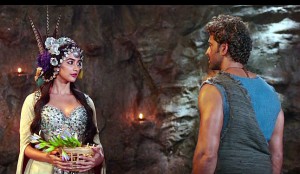
This is equally cringeworthy and perversely enjoyable — if only to see how the mighty fall so hard. I’d pay to watch the likes of Ashutosh Gowarikar and Hrithik Roshan ‘ideate’ in a closed room today. From agile flying crocodiles to Bollywood-dresswaala costumes and miniature clay towns to bonus endings and excitable dams (the energetic water is perhaps the best actor of the film), Mohenjo Daro is the unfortunate result of a horribly sloppy orgy between 3rd grade history, disillusioned Baahubali technicians and Kabir Bedi’s baritone in an empty editing suite.
SPECIAL MENTION(S): RUSTOM, SHIVAAY
Worst Performer: TIGER SHROFF

Many journalists and “well-wishers” swear by the nobility and sincerity of this star kid, conveniently forgetting that the film industry isn’t a martial-arts circus that lives on love, faith and stubble-less faces. He is probably amassing a massive leave-brains-at-home all-brawn following akin to that of Salman Khan’s, and is being marketed as the last (single-screen) action hero, but surely — SURELY — it has to be acknowledged that his muscles emote better than him. He looks like a child being indulged by his paternal uncle directors in all his ridiculously designed films. Case in point: Baaghi and A Flying Jatt this year alone.
SPECIAL MENTION: JOHN ABRAHAM (Rocky Handsome, Force 2)
Best Comedy of 2016: SAAT UCHAKKEY
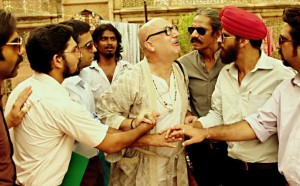 The deliciously potty-mouthed, absurdist, overcrowded, anarchic and surreal lower-middle-class Delhi-6 based heist comedy will be remembered for its inane multi-starring madness: Traditionally ‘serious’ performers like Manoj Bajpayee, Kay Kay Menon, Vijay Raaz, Aditi Sharma and others letting their hair down in a film parodying the culture of slapstick caricatures by doing it better — and louder — than most others of their breed.
The deliciously potty-mouthed, absurdist, overcrowded, anarchic and surreal lower-middle-class Delhi-6 based heist comedy will be remembered for its inane multi-starring madness: Traditionally ‘serious’ performers like Manoj Bajpayee, Kay Kay Menon, Vijay Raaz, Aditi Sharma and others letting their hair down in a film parodying the culture of slapstick caricatures by doing it better — and louder — than most others of their breed.
SPECIAL MENTION: HAPPY BHAG JAYEGI, TERE BIN LADEN: Dead or Alive
Best Film That Could Have Been: BAAR BAAR DEKHO
 When we heard that a big-budget Hindi film on time-travel is being conceptualised at Dharma, we prayed and hoped they wouldn’t Roy-fy (overcook an innovative concept) it. Points to Nitya Mehra for managing to pitch a relatively risky theme in this safe-is-gold atmosphere, but none for turning it into a sloppy, star-heavy, overly shiny rom-com starring the gorgeous, but un-actorly Katrina Kaif. The problem with doing new things in this industry is that, especially as a newbie, you’ll get only one chance to be brave — and you have to succeed. Otherwise, along with your own career, it’s also an entire genre whose weight on your shoulders you failed to carry, that will never be tried again. Producers will get wary all over again. The film-within-a-film template, after Roy, won’t be attempted anytime soon, and neither will time-travel-love. I’d rather turn to Richard Curtis’s About Time again.
When we heard that a big-budget Hindi film on time-travel is being conceptualised at Dharma, we prayed and hoped they wouldn’t Roy-fy (overcook an innovative concept) it. Points to Nitya Mehra for managing to pitch a relatively risky theme in this safe-is-gold atmosphere, but none for turning it into a sloppy, star-heavy, overly shiny rom-com starring the gorgeous, but un-actorly Katrina Kaif. The problem with doing new things in this industry is that, especially as a newbie, you’ll get only one chance to be brave — and you have to succeed. Otherwise, along with your own career, it’s also an entire genre whose weight on your shoulders you failed to carry, that will never be tried again. Producers will get wary all over again. The film-within-a-film template, after Roy, won’t be attempted anytime soon, and neither will time-travel-love. I’d rather turn to Richard Curtis’s About Time again.
Cinematic Moment of 2016:
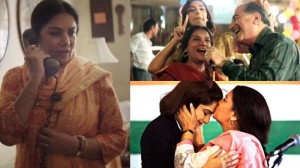 For a year with so many plot-driven, twist-loving thrillers (Wazir, Te3n, Kahaani 2, Fan, Phobia, Traffic), it’s a little surprising that the most powerful moments on screen have belonged to the dramas. Maybe not so much, actually, given an inherent contemporary Indian tendency to excel at emotion-building over narrative heft. There have been some teary contenders: Naseeruddin Shah pouring his heart out to his comatose wife in Waiting, a lonely eccentric grieving old man (Rishi Kapoor) appealing to his estranged grandsons over Skype in Kapoor & Sons, a traumatised feisty young Bihari immigrant (Alia Bhatt) stunning a drug-addled pop star (Shahid Kapoor) with her tragic outburst in their first meeting in Udta Punjab, an obsessed fan emulating his superstar idol’s best dialogues and scenes on stage in Fan, a disgruntled senior lawyer (Amitabh Bachchan) interrogating an entitled, misogynistic Delhi brat (Angad Bedi) in Pink, a pot-bellied Salman Khan breaking down at his own reflection in the mirror in Sultan, a swaggering Yuvraj Singh clone (Harry Tangri) walking past a younger Dhoni (Sushant Singh Rajput) in the biopic MS Dhoni: The Untold Story, a heartbroken man-child (Ranbir Kapoor) getting invited to the wedding of the ‘friend’ (Anushka Sharma) he is in love with in Ae Dil Hai Mushkil, Fatima Sana Shaikh’s (as Geeta Kumari Phogat) last-gasp slow-mo 5-point wrestling move in Dangal‘s final moments, and Salim Diwan’s (as struggler Rohit) crestfallen face when the judges turn tide and eliminate him from the acting reality show in Bollywood Diaries. But perhaps the most affecting moment — scene — of the year is a one that internalises the cumulative effect of every single action that precedes it. Shabana Azmi, as Neerja Bhanot’s shaken mother, breaks down while speaking about her daughter in front of her body on stage. Azmi is simultaneously consoling herself and the country, as the magnitude of the occasion dawns upon her — her private grief pouring out in a public, poignant manner. Her graph throughout the film up till this speech was one of a mother paranoid to the point of delusion, until she gathers herself and crumbles into pieces at one go. Which is ironic, given that this closing portion was director Ram Madhvani’s only indulgence after a sharp, superbly re-constructed airplane incident. In hindsight, it all led to Ms. Azmi, instead of Ms. Azmi simply accepting the baton of the film’s momentum.
For a year with so many plot-driven, twist-loving thrillers (Wazir, Te3n, Kahaani 2, Fan, Phobia, Traffic), it’s a little surprising that the most powerful moments on screen have belonged to the dramas. Maybe not so much, actually, given an inherent contemporary Indian tendency to excel at emotion-building over narrative heft. There have been some teary contenders: Naseeruddin Shah pouring his heart out to his comatose wife in Waiting, a lonely eccentric grieving old man (Rishi Kapoor) appealing to his estranged grandsons over Skype in Kapoor & Sons, a traumatised feisty young Bihari immigrant (Alia Bhatt) stunning a drug-addled pop star (Shahid Kapoor) with her tragic outburst in their first meeting in Udta Punjab, an obsessed fan emulating his superstar idol’s best dialogues and scenes on stage in Fan, a disgruntled senior lawyer (Amitabh Bachchan) interrogating an entitled, misogynistic Delhi brat (Angad Bedi) in Pink, a pot-bellied Salman Khan breaking down at his own reflection in the mirror in Sultan, a swaggering Yuvraj Singh clone (Harry Tangri) walking past a younger Dhoni (Sushant Singh Rajput) in the biopic MS Dhoni: The Untold Story, a heartbroken man-child (Ranbir Kapoor) getting invited to the wedding of the ‘friend’ (Anushka Sharma) he is in love with in Ae Dil Hai Mushkil, Fatima Sana Shaikh’s (as Geeta Kumari Phogat) last-gasp slow-mo 5-point wrestling move in Dangal‘s final moments, and Salim Diwan’s (as struggler Rohit) crestfallen face when the judges turn tide and eliminate him from the acting reality show in Bollywood Diaries. But perhaps the most affecting moment — scene — of the year is a one that internalises the cumulative effect of every single action that precedes it. Shabana Azmi, as Neerja Bhanot’s shaken mother, breaks down while speaking about her daughter in front of her body on stage. Azmi is simultaneously consoling herself and the country, as the magnitude of the occasion dawns upon her — her private grief pouring out in a public, poignant manner. Her graph throughout the film up till this speech was one of a mother paranoid to the point of delusion, until she gathers herself and crumbles into pieces at one go. Which is ironic, given that this closing portion was director Ram Madhvani’s only indulgence after a sharp, superbly re-constructed airplane incident. In hindsight, it all led to Ms. Azmi, instead of Ms. Azmi simply accepting the baton of the film’s momentum.
Best Mainstream Film: UDTA PUNJAB, KAPOOR & SONS (SINCE 1921)
 I wouldn’t call ‘Udta Punjab‘ an out-and-out commercial film, but considering the (unfortunate) censor hype it gathered in the run-up to its release, it became a huge film. Easily director Abhishek Chaubey’s best and most fearless effort, with some stunningly good lead turns by unrecognisable stars.
I wouldn’t call ‘Udta Punjab‘ an out-and-out commercial film, but considering the (unfortunate) censor hype it gathered in the run-up to its release, it became a huge film. Easily director Abhishek Chaubey’s best and most fearless effort, with some stunningly good lead turns by unrecognisable stars.
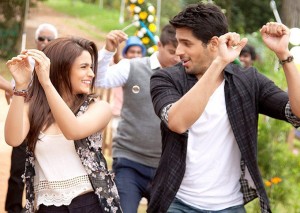 Kapoor & Sons, Dharma protege Shakun Batra’s second film after the underrated rom-com ‘Ek Main Aur Ekk Tu’ (2011), was perhaps the closest Hindi cinema has gotten — in truth and maturity — to Mira Nair’s Monsoon Wedding (sans the wedding). A fine, instinctive and well choreographed contemporary family drama, it also proves that talented “supporting actor” Alia Bhatt is perhaps the best judge of scripts these days.
Kapoor & Sons, Dharma protege Shakun Batra’s second film after the underrated rom-com ‘Ek Main Aur Ekk Tu’ (2011), was perhaps the closest Hindi cinema has gotten — in truth and maturity — to Mira Nair’s Monsoon Wedding (sans the wedding). A fine, instinctive and well choreographed contemporary family drama, it also proves that talented “supporting actor” Alia Bhatt is perhaps the best judge of scripts these days.
SPECIAL MENTION(S): NEERJA, AIRLIFT
Worst Best Film: DANGAL
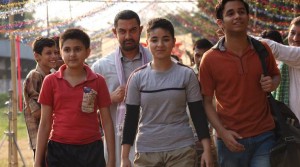 A rousing, chest-beating and well-made biopic on a rural wrestling family — a father and his two (one, actually) daughters — does a lot right till its final act, where it introduces a laughably silly antagonist to lend the heroes of the film, who’re already in the resolution phase of their own conflict, more ‘filmy’ heft. This wasn’t needed, demoting Dangal from great to simply a ‘good story’ in the matter of moments.
A rousing, chest-beating and well-made biopic on a rural wrestling family — a father and his two (one, actually) daughters — does a lot right till its final act, where it introduces a laughably silly antagonist to lend the heroes of the film, who’re already in the resolution phase of their own conflict, more ‘filmy’ heft. This wasn’t needed, demoting Dangal from great to simply a ‘good story’ in the matter of moments.
SPECIAL MENTION: DEAR ZINDAGI, PINK
Best Film of 2016: WAITING
A simple, extraordinary little “Hin-glish” film that remained with us long after leaving the hall, Anu Menon’s ‘Waiting’, starring Kalki and Naseeruddin Shah, explores grief more as a private and inescapable emotion than a movie concept. By pitching two contrasting personalities — both in age and temperament — against and with one another, Menon and her writers create an environment buzzing with impulses and brooding minds. Kapoor & Sons aside, some of the most emotionally charged moments of the year belong to these two characters. Every supporting face — from the nurses to the young doctors to friends, company liaison to the pragmatic chief doctor (Rajat Kapoor) — exists for a reason, powered by real lines and unobtrusive lead performances.
SPECIAL MENTION: ISLAND CITY, ALIGARH
Best Relevant Film: ALIGARH
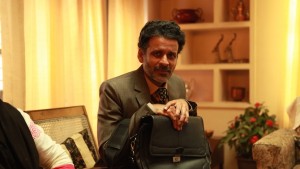 This isn’t as random a category as it sounds. A vast amount of incompetent Hindi movies are made every year in the name of social and cultural ‘relevance’, importance, small-with-big-heart and general intentions-and-independence-should-override-artistry auras. The next category will list a few that have horribly missed the mark, but Hansal Mehta’s Aligarh, a fine film on its own, will be remembered for far more than the tragic life (Dr. Ramchandra Siras, of Aligarh Muslim University, a gay professor found dead after fighting a legal battle against the institution) it represents. Manoj Bajpayee as the unfortunate professor, the writers and Rajkummar Rao as the empathetic journalist who uncovers his story demonstrate a solid understanding of Mehta’s unfussy vision. Together, they bring to life a haunting portrait of an Indian citizen victimised for his sexuality — a stigma now more relevant than ever, in light of the nonsensical Section 377 of the IPC. Later in the year, Arvind Swamy starrer and the similarly-themed DEAR DAD about a father coming out to his son on a road trip, failed to capitalise on the conversation ALIGARH began.
This isn’t as random a category as it sounds. A vast amount of incompetent Hindi movies are made every year in the name of social and cultural ‘relevance’, importance, small-with-big-heart and general intentions-and-independence-should-override-artistry auras. The next category will list a few that have horribly missed the mark, but Hansal Mehta’s Aligarh, a fine film on its own, will be remembered for far more than the tragic life (Dr. Ramchandra Siras, of Aligarh Muslim University, a gay professor found dead after fighting a legal battle against the institution) it represents. Manoj Bajpayee as the unfortunate professor, the writers and Rajkummar Rao as the empathetic journalist who uncovers his story demonstrate a solid understanding of Mehta’s unfussy vision. Together, they bring to life a haunting portrait of an Indian citizen victimised for his sexuality — a stigma now more relevant than ever, in light of the nonsensical Section 377 of the IPC. Later in the year, Arvind Swamy starrer and the similarly-themed DEAR DAD about a father coming out to his son on a road trip, failed to capitalise on the conversation ALIGARH began.
SPECIAL MENTION: NIL BATTEY SANNATA
Worst Film Based On Relevance: CHALK N’ DUSTER, ROUGH BOOK, BUDDHA IN A TRAFFIC JAM, SHORGUL
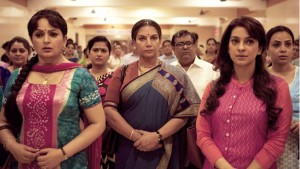 The first one is about old-school (pun intended) teachers fighting capitalisation in what looks like a tacky, obtrusive stage play.
The first one is about old-school (pun intended) teachers fighting capitalisation in what looks like a tacky, obtrusive stage play.
The second one is again about education, a bunch of “losers” led to glory by an unconventional teacher — made for kids, with the grace of fumbling adults, unintentionally accelerating (instead of addressing) India’s brain-drain epidemic.
The third one is a right-wing filmmaker’s dangerously idealistic rant in the form of a contemporary college-pivoting naxalite-government battle; surely one of the most bizarre ‘dramatic licenses’ ever used.
The fourth is a deformed and irresponsible (at best) mandatory-hinterland-Ashutosh-Rana-and-Jimmy-Shergill bastardization of the 2013 Muzaffarnagar riots.
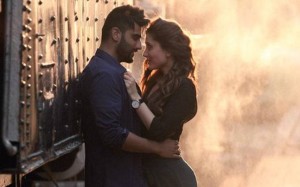
SPECIAL MENTION: KI & KA (a cringeworthy and obvious film that reiterates gender stereotypes by trying to be uber-hipster-wannabe-teeny cool about gender stereotypes. And, oh my lord, Arjun Kapoor and that toy train in that pretentious Delhi apartment. R. Balki needs to an intervention.)
Best Underrated Performance of 2016: Pankaj Tripathi (NIL BATTEY SANNATA)
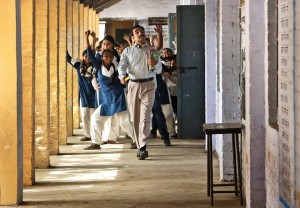 Tripathi gets it exceedingly right as the Agra-based quasi-strict, playful and perceptive school teacher on the sidelines, shaping the story of Swara Bhaskar (as a single-mother and housemaid) and young Ria Shukla (as her stubborn math-challenged daughter), who steal the show in Ashwiny Iyer Tiwari’s (incidentally, one half of two married couples this year to have directed films in 2016; husband Nitesh made Dangal; R. Balki made Ki&Ka while wife Gauri Shinde made Dear Zindagi) bittersweet Nil Battey Sannata.
Tripathi gets it exceedingly right as the Agra-based quasi-strict, playful and perceptive school teacher on the sidelines, shaping the story of Swara Bhaskar (as a single-mother and housemaid) and young Ria Shukla (as her stubborn math-challenged daughter), who steal the show in Ashwiny Iyer Tiwari’s (incidentally, one half of two married couples this year to have directed films in 2016; husband Nitesh made Dangal; R. Balki made Ki&Ka while wife Gauri Shinde made Dear Zindagi) bittersweet Nil Battey Sannata.
Best Villain of 2016: Tahir Raj Bhasin for FORCE 2
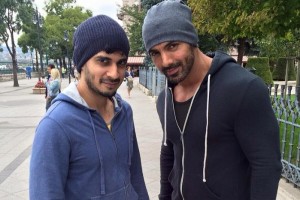 The youngster, only two feature-length films old, has repeated his cool-urban-yuppie hoodie-villain act in both films — but is there anyone who does the chilling-hacker act better than him? I think not. He oozes menace and boyishness again, in a role that makes John Abraham look like more of a trunk of wood than he is, in a film that is perhaps one of the not-so-bad Hindi actioners of the year.
The youngster, only two feature-length films old, has repeated his cool-urban-yuppie hoodie-villain act in both films — but is there anyone who does the chilling-hacker act better than him? I think not. He oozes menace and boyishness again, in a role that makes John Abraham look like more of a trunk of wood than he is, in a film that is perhaps one of the not-so-bad Hindi actioners of the year.
SPECIAL MENTION: Narendra Jha in GHAYAL ONCE AGAIN
Worst Villain of 2016: Teddy Maurya for ROCKY HANDSOME
 The hammiest performance of the year, by far, is the otherwise-considerable actor Teddy Maurya’s (brother of Vijay Maurya) horribly overstated unhinged-brother-of-villain act in prolific director Nishikant Kamath’s soulless actioner, starring who else but John Abraham. This role is the polar opposite of Bhasin’s in Force 2, where hyena-chuckles and psychotic rages are par for the course in the Nirmal-Pandey-from-1-2-Ka-4 School of villainous roles.
The hammiest performance of the year, by far, is the otherwise-considerable actor Teddy Maurya’s (brother of Vijay Maurya) horribly overstated unhinged-brother-of-villain act in prolific director Nishikant Kamath’s soulless actioner, starring who else but John Abraham. This role is the polar opposite of Bhasin’s in Force 2, where hyena-chuckles and psychotic rages are par for the course in the Nirmal-Pandey-from-1-2-Ka-4 School of villainous roles.
Best Action Film of 2016: GHAYAL ONCE AGAIN
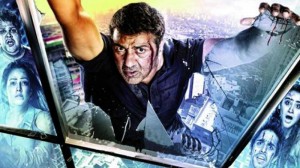 Sunny Deol does a pretty cool job as both star and director of the sequel of the 1990s classic, fashioning a contemporary, harebrained and flimsily idealistic Mumbai (taking jibs at everyone from Mukesh Ambani’s monstrosity of a building and Times MD Vineet Jain’s infamous reputation) in this quasi-vigilante take on the last-action-hero template. The chase sequences are spectacular, making up in spirit for the simplicity of plot.
Sunny Deol does a pretty cool job as both star and director of the sequel of the 1990s classic, fashioning a contemporary, harebrained and flimsily idealistic Mumbai (taking jibs at everyone from Mukesh Ambani’s monstrosity of a building and Times MD Vineet Jain’s infamous reputation) in this quasi-vigilante take on the last-action-hero template. The chase sequences are spectacular, making up in spirit for the simplicity of plot.
Worst Mainstream Film: AZHAR
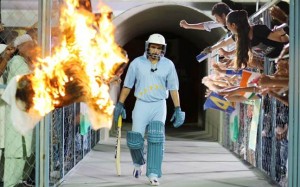 So many proud contenders for this one, as usual. Most of them loud, starry and utterly greedy biopics. But none worse than this one based on the life of cricketer and ex-Indian captain Mohammad Azharuddin. Emraan Hashmi plays the titular role in Balaji’s 8-bit version of a 1997 Codemasters Cricket video game. Without even getting into the villain-worshipping questionable politics of it, let’s just say that Nargis Fakhri (as Sangeeta Bijlani; a terrible actress playing an awful actress) isn’t even the worst part. The actors (?) filling in for cricketers like Manoj Prabhakar, Kapil Dev, Ravi Shastri, Anil Kumble and Ajay Jadeja look like a wet pack of ancient trump cards. A disgrace for sports biopics; a disgrace to filmmaking.
So many proud contenders for this one, as usual. Most of them loud, starry and utterly greedy biopics. But none worse than this one based on the life of cricketer and ex-Indian captain Mohammad Azharuddin. Emraan Hashmi plays the titular role in Balaji’s 8-bit version of a 1997 Codemasters Cricket video game. Without even getting into the villain-worshipping questionable politics of it, let’s just say that Nargis Fakhri (as Sangeeta Bijlani; a terrible actress playing an awful actress) isn’t even the worst part. The actors (?) filling in for cricketers like Manoj Prabhakar, Kapil Dev, Ravi Shastri, Anil Kumble and Ajay Jadeja look like a wet pack of ancient trump cards. A disgrace for sports biopics; a disgrace to filmmaking.
HONOURABLE MENTION(S): SARBJIT, MIRZYA, BAAGHI, DO LAFZON KI KAHANI, HOUSEFULL 3
Most Disappointing Film: WAZIR
 Any film with Amitabh Bachchan as one of the key protagonists is bound to raise expectations, and therefore disappoint if it turns out to be an all-explanatory, loud and cold turkey. Wazir, ‘conceptualised’ by Vidhu Vinod Chopra and directed by style-over-substance Bejoy Nambiar, lets its mainstream ambitions caste a thick shadow over its sensationalised plot-empty intentions. Placing an allegedly engaging chess board (signifying “moves” and “intelligence”) in each scene doesn’t make the film half as smart as it thinks it is. Depressingly predictable for a thriller, it often veers into so-bad-it’s-funny mode, with actor Farhan Akhtar looking perpetually pensive and bored as a grieving ATS officer out to hunt the baddies responsible for his daughter’s death. And Amitabh’s wheelchair-clad eccentric chap (as always) is such a dead give-away, that the writers resort to pre-recorded voices and expository flashbacks to explain their own leaps of senility. Wazir is, quite simply, a dishonest film, chopped and compromised to better fit into its own limitations.
Any film with Amitabh Bachchan as one of the key protagonists is bound to raise expectations, and therefore disappoint if it turns out to be an all-explanatory, loud and cold turkey. Wazir, ‘conceptualised’ by Vidhu Vinod Chopra and directed by style-over-substance Bejoy Nambiar, lets its mainstream ambitions caste a thick shadow over its sensationalised plot-empty intentions. Placing an allegedly engaging chess board (signifying “moves” and “intelligence”) in each scene doesn’t make the film half as smart as it thinks it is. Depressingly predictable for a thriller, it often veers into so-bad-it’s-funny mode, with actor Farhan Akhtar looking perpetually pensive and bored as a grieving ATS officer out to hunt the baddies responsible for his daughter’s death. And Amitabh’s wheelchair-clad eccentric chap (as always) is such a dead give-away, that the writers resort to pre-recorded voices and expository flashbacks to explain their own leaps of senility. Wazir is, quite simply, a dishonest film, chopped and compromised to better fit into its own limitations.
SPECIAL MENTION(S): FITOOR, FAN, MIRZYA, TE3N
Worst Film: TERAA SURROOR
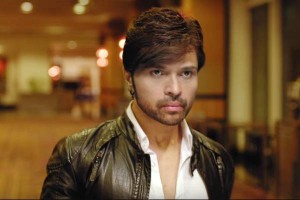 Himmesh, please.
Himmesh, please.
SPECIAL MENTION: SANAM RE (Pulkit Samrat, Yami Gautam, Heart Transplant, Snow in a film by, directed by, written by, special appearance(d) in an item song by, and bye-byed by Divya Khosla Kumar)
BANWORTHY FILM(S): KYA KOOL HAI HUM 3, MASTIZAADE
 With one mind (writer/director Milap Zaveri) behind both these utterly greedy sex-comedies-with-Tusshar-in-Bangkok efforts, this lazy, exploitative and disgraceful genre may have hit new lows with both releasing within a week of each other in late January, there by making many critics existentially examine the meaning and worth of their own jobs. It doesn’t matter which was which and had who doing what. School-level innuendos and female body parts were the protagonists. One had the “brave and spunky” Sunny Leone (whose fake star is thankfully fading, at long last) in a double role, and another tried to be meta by being a Zack-and-Miri-Make-A-Porno-ish porn-com, but none had even earned a right to exist within the sleazy loin-writhing confines of sex-starved, suppressed matinee-show males.
With one mind (writer/director Milap Zaveri) behind both these utterly greedy sex-comedies-with-Tusshar-in-Bangkok efforts, this lazy, exploitative and disgraceful genre may have hit new lows with both releasing within a week of each other in late January, there by making many critics existentially examine the meaning and worth of their own jobs. It doesn’t matter which was which and had who doing what. School-level innuendos and female body parts were the protagonists. One had the “brave and spunky” Sunny Leone (whose fake star is thankfully fading, at long last) in a double role, and another tried to be meta by being a Zack-and-Miri-Make-A-Porno-ish porn-com, but none had even earned a right to exist within the sleazy loin-writhing confines of sex-starved, suppressed matinee-show males.
SPECIAL MENTION: LOVE GAMES, ONE NIGHT STAND, TUM BIN 2
BEST ACTOR: SALIM DIWAN (BOLLYWOOD DIARIES)
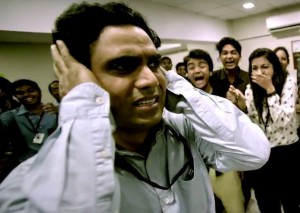 Most of us get cynical when we see the son of a producer slotted in as one of the lead actors. But Salim Diwan, a little-known theatre face from Rajasthan, is riveting and heartbreaking as an aspiring actor who is led on by a reality show because of how “terrible and entertaining” he is. Everybody has come across sad, talentless faces desperate for a big break, spurred on by dreams of being a SRK-style rags-to-riches superstar; Diwan plays one of those strugglers who becomes an unassuming victim of the ratings-driven tinsel-town spotlight. To do a good job of playing a bad actor in a film is not easy, and requires a certain amount of detachment and internalisation not many can pull off. A criminally underrated performance in a criminally ignored film.
Most of us get cynical when we see the son of a producer slotted in as one of the lead actors. But Salim Diwan, a little-known theatre face from Rajasthan, is riveting and heartbreaking as an aspiring actor who is led on by a reality show because of how “terrible and entertaining” he is. Everybody has come across sad, talentless faces desperate for a big break, spurred on by dreams of being a SRK-style rags-to-riches superstar; Diwan plays one of those strugglers who becomes an unassuming victim of the ratings-driven tinsel-town spotlight. To do a good job of playing a bad actor in a film is not easy, and requires a certain amount of detachment and internalisation not many can pull off. A criminally underrated performance in a criminally ignored film.
SPECIAL MENTION(S): Siddhant Behl (JUGNI), Manoj Bajpayee (ALIGARH), Nawazuddin Siddiqui (RAMAN RAGHAV 2.0)
Best Actress: RADHIKA APTE (PHOBIA)

That’s right. A Hindi-language psychological horror film driven by an all-consuming lead performance. Apte, whose star has been on the rise since her ‘Badlapur’ act, was in danger of being overexposed and stereotyped after a prolific year. But in Pawan Kirpalani’s Phobia, as the agoraphobic young woman stuck in a mysterious Malad flat, she captivates and makes us empathise with her condition, and lends the occasionally repetitive script an omnipresent edginess. By the end, you invest into her enough to believe that this film will be appreciated far more in times to come.
SPECIAL MENTION: Kalki Koechlin (WAITING)
Best Supporting Actor: ASHISH VIDYARTHI (BOLLYWOOD DIARIES)
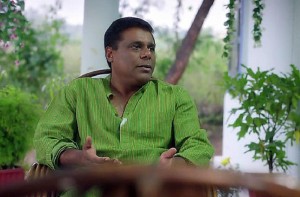 At one point, the Bhilai-based husband and father Vishnu (Vidyarthi), who has suppressed his acting ambitions to lead a quiet and ‘responsible’ duty-fulfilling Indian man’s life, breaks down like a heartbroken, cheated child in front of his wife (Karuna Pandey; disquieting). She isn’t entertaining his dream — his plans to quit his job, move to Mumbai and struggle as a ‘character actor’ in B-town — “you promised me, you promised me,” he repeats, weeping, his junoon refusing to fade until he gets his way. His wife’s stunned face tells a story, and Vidyarthi — who has long filled mainstream Indian cinema’s space as a perpetually shady villain — finally gets to demonstrate what a nuanced stage actor he is. His makes for the most tragic story out of the three in the film; especially the part where destiny intervenes while he gives an emotional farewell-party speech in one long take to all his well-wishers.
At one point, the Bhilai-based husband and father Vishnu (Vidyarthi), who has suppressed his acting ambitions to lead a quiet and ‘responsible’ duty-fulfilling Indian man’s life, breaks down like a heartbroken, cheated child in front of his wife (Karuna Pandey; disquieting). She isn’t entertaining his dream — his plans to quit his job, move to Mumbai and struggle as a ‘character actor’ in B-town — “you promised me, you promised me,” he repeats, weeping, his junoon refusing to fade until he gets his way. His wife’s stunned face tells a story, and Vidyarthi — who has long filled mainstream Indian cinema’s space as a perpetually shady villain — finally gets to demonstrate what a nuanced stage actor he is. His makes for the most tragic story out of the three in the film; especially the part where destiny intervenes while he gives an emotional farewell-party speech in one long take to all his well-wishers.
SPECIAL MENTION: Vijay Varma (PINK)
Best Supporting Actress: ALIA BHATT (UDTA PUNJAB)
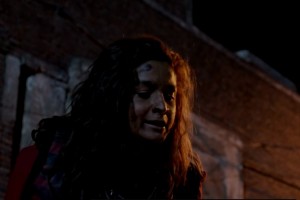 She doesn’t get the Bhojpuri accent right, but there has rarely been a more affecting, unnerving and powerful performance by any actor in recent times than 23-year-old Alia’s, as the exploited Bihari immigrant falling prey to drug lords in Punjab. The film will remain one of the best and most significant of 2016, but if you had to look back and identify the one scene that shook your foundations, it’d have to be her stunning outburst during her first interaction with on-the-run pop star Tommy Singh (Shahid Kapoor). And *that* kiss. The context of that kiss.
She doesn’t get the Bhojpuri accent right, but there has rarely been a more affecting, unnerving and powerful performance by any actor in recent times than 23-year-old Alia’s, as the exploited Bihari immigrant falling prey to drug lords in Punjab. The film will remain one of the best and most significant of 2016, but if you had to look back and identify the one scene that shook your foundations, it’d have to be her stunning outburst during her first interaction with on-the-run pop star Tommy Singh (Shahid Kapoor). And *that* kiss. The context of that kiss.
SPECIAL MENTION(S): Amruta Subhash (Island City), Shabana Azmi (NEERJA), Fatima Sana Shaikh (DANGAL), Tannishtha Chatterjee (PARCHED), Kirti Kulhari (PINK)
Special Rajpal-Yadav Ham-fest Award:
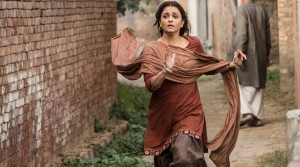 Aishwarya Rai (SARBJIT), Manoj Joshi (SANAM RE), Emraan Hashmi (AZHAR), Neil Nitin Mukesh (WAZIR), Boman Irani (Housefull 3), Girish Kulkarni (Dangal), Cancer (Ae Dil Hai Mushkil)
Aishwarya Rai (SARBJIT), Manoj Joshi (SANAM RE), Emraan Hashmi (AZHAR), Neil Nitin Mukesh (WAZIR), Boman Irani (Housefull 3), Girish Kulkarni (Dangal), Cancer (Ae Dil Hai Mushkil)
Best Actor in an AVERAGE film: Sushant Singh Rajput (MS DHONI: The Untold Story)
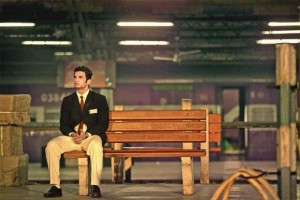 Rajput gets Dhoni’s physicality on point, right from his gait to his walking style to his shoulder shuffles to his famous helicopter shot and dismissive slashes on the cricket field. He seems to have done his research, spending enough time with the real man, despite being occasionally let down by Neeraj Pandey’s hagiographic wikipedia-presentation of a film. He does well to invoke Captain Cool’s aura for most part, and even lends the role some of his own, walking the fine line between emulating and impersonating a biopic subject and ‘adapting’ the character to one’s own inherent strengths and idiosyncrasies. It’s as much Dhoni as it is Rajput — the sign of a successful role.
Rajput gets Dhoni’s physicality on point, right from his gait to his walking style to his shoulder shuffles to his famous helicopter shot and dismissive slashes on the cricket field. He seems to have done his research, spending enough time with the real man, despite being occasionally let down by Neeraj Pandey’s hagiographic wikipedia-presentation of a film. He does well to invoke Captain Cool’s aura for most part, and even lends the role some of his own, walking the fine line between emulating and impersonating a biopic subject and ‘adapting’ the character to one’s own inherent strengths and idiosyncrasies. It’s as much Dhoni as it is Rajput — the sign of a successful role.
SPECIAL MENTION: Ranbir Kapoor in AE DIL HAI MUSHKIL, Shah Rukh Khan in FAN
Best Screenplay: Anu Menon, James Ruzicka, Atika Chohan for WAITING
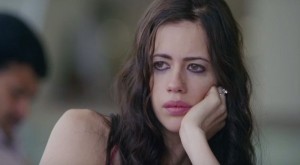 Tara (Kalki) and Shiv (Naseer), the two protagonists of Menon’s film, sound and look like the most natural characters at the movies this year. Sometimes, it’s more than the traditional “plot” or story, or the narrative; it’s about the little quirks of life, the silences and the moments in between moments, that the writers — by not interfering with the organic progression of the two personas — captured very nicely. This isn’t a screenplay-oriented film, and yet it is by virtue of not being significantly eye-catching.
Tara (Kalki) and Shiv (Naseer), the two protagonists of Menon’s film, sound and look like the most natural characters at the movies this year. Sometimes, it’s more than the traditional “plot” or story, or the narrative; it’s about the little quirks of life, the silences and the moments in between moments, that the writers — by not interfering with the organic progression of the two personas — captured very nicely. This isn’t a screenplay-oriented film, and yet it is by virtue of not being significantly eye-catching.
SPECIAL MENTIONS: Sudip Sharma & Abhishek Chaubey for UDTA PUNJAB, Shakun Batra & Ayesha Dhillon for KAPOOR & SONS (Since 1921)
Worst Screenplay: Fitoor, Mirzya
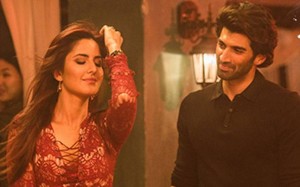 Where snow and air served as the script.
Where snow and air served as the script.
Best Production Design: Mustafa Stationwala for AIRLIFT
 From burning cars on the streets of Ras Al Khaimah to a little survival film of its own unfolding within the confines of a decrepit school-space (shot in Jaisalmer and Jodhpur), Stationwala seems to have added the most to his director’s vision of the fascinating Kuwait-Invasion era. Perhaps the biggest compliment, apart from the fact that everything looked Middle-Eastern enough (down to Kumud Mishra’s Delhi government office humdrum), is that Akshay Kumar looked (and didn’t need to act) like a man — and not a star — on a mission. All thanks to his carefully planned, unobtrusive surroundings.
From burning cars on the streets of Ras Al Khaimah to a little survival film of its own unfolding within the confines of a decrepit school-space (shot in Jaisalmer and Jodhpur), Stationwala seems to have added the most to his director’s vision of the fascinating Kuwait-Invasion era. Perhaps the biggest compliment, apart from the fact that everything looked Middle-Eastern enough (down to Kumud Mishra’s Delhi government office humdrum), is that Akshay Kumar looked (and didn’t need to act) like a man — and not a star — on a mission. All thanks to his carefully planned, unobtrusive surroundings.
SPECIAL MENTION: Aparna Sud for NEERJA
Worst Production Design: MOHENJO DARO, RUSTOM
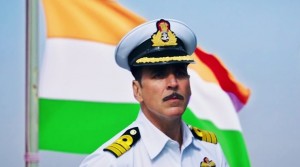 ‘History Porn’ taken in the most literal sense. Everything, and everyone, looked like a kinky role-play session.
‘History Porn’ taken in the most literal sense. Everything, and everyone, looked like a kinky role-play session.
Best Sound Design: Subhash Sahoo for NEERJA
 The grim early morning din of Delhi, followed by a pre-dawn flight and a build-up of tension and dread, feels intensely personal and atmospheric in Ram Madhvani’s film. More importantly, it sounds like we’re there, right from the car ride to the insides of the ill-fated plane, as well as the Bhanot residence and father’s office. Each had its own distinct hum without really making it obvious — a victory for all the technical collaborators on this truly well-crafted movie.
The grim early morning din of Delhi, followed by a pre-dawn flight and a build-up of tension and dread, feels intensely personal and atmospheric in Ram Madhvani’s film. More importantly, it sounds like we’re there, right from the car ride to the insides of the ill-fated plane, as well as the Bhanot residence and father’s office. Each had its own distinct hum without really making it obvious — a victory for all the technical collaborators on this truly well-crafted movie.
SPECIAL MENTION: Kunal Sharma for UDTA PUNJAB
Worst Sound Design: VEERAPPAN
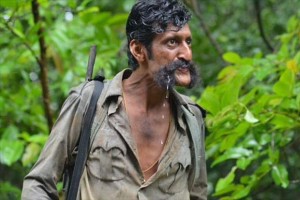 At one point, dialogues were drowned out by a background score that sounded suspiciously like a cat drowning in its own drool. It also made me realise it’s not the dubbing, but the concept of levelling of voices that seems to be lost upon the once-film-school-on-his-own, Ramgopal Varma.
At one point, dialogues were drowned out by a background score that sounded suspiciously like a cat drowning in its own drool. It also made me realise it’s not the dubbing, but the concept of levelling of voices that seems to be lost upon the once-film-school-on-his-own, Ramgopal Varma.
Worst Actress: PATRALEKHA for LOVE GAMES
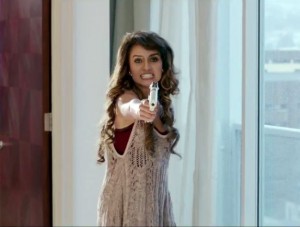 There’s a difference between acting crazed and looking crazed for a part. Patralekha, who seemed promising enough in Hansal Mehta’s City Lights, went off the deep end in this horrid erotic thriller. The other girl, Tara Alisha Berry, came across as a genuinely good actress simply because Patralekha went all Arbaaz-Khan-in-Daraar on us. Bad career move, this.
There’s a difference between acting crazed and looking crazed for a part. Patralekha, who seemed promising enough in Hansal Mehta’s City Lights, went off the deep end in this horrid erotic thriller. The other girl, Tara Alisha Berry, came across as a genuinely good actress simply because Patralekha went all Arbaaz-Khan-in-Daraar on us. Bad career move, this.
Best Cinematography: Mitesh Mirchandani for NEERJA
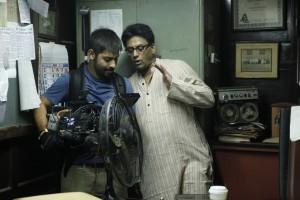 It’s not always about gorgeous locales, breathtaking imagery and hypnotic snowcapped mountains. Neerja’s cinematography looped in so well with its pace, with there being a clear distinction between the cold blue-ish cramped space of the airplane and warm, sombre and foreboding tone of the outside world. It was the perfect amount of jittery, the right amount of close during close-ups (especially of Sonam Kapoor’s frightened face) and the correct amount of kinetic-ness as things reached a tragic resolution.
It’s not always about gorgeous locales, breathtaking imagery and hypnotic snowcapped mountains. Neerja’s cinematography looped in so well with its pace, with there being a clear distinction between the cold blue-ish cramped space of the airplane and warm, sombre and foreboding tone of the outside world. It was the perfect amount of jittery, the right amount of close during close-ups (especially of Sonam Kapoor’s frightened face) and the correct amount of kinetic-ness as things reached a tragic resolution.
SPECIAL MENTION: Rajeev Ravi for UDTA PUNJAB
Best Editing: Monisha R. Baldawa for NEERJA
 All of the above, and perhaps the fact that not for one moment did the stunning tale of the heroic Pan-Am purser seem exploitative or manipulative. This is not only down to the writers, but the way in which a cut, and a sequence of them, reflects the hapless aura of these characters on the plane.
All of the above, and perhaps the fact that not for one moment did the stunning tale of the heroic Pan-Am purser seem exploitative or manipulative. This is not only down to the writers, but the way in which a cut, and a sequence of them, reflects the hapless aura of these characters on the plane.
Best Background Score: Benedict Taylor and Naren Chandavarkar for UDTA PUNJAB
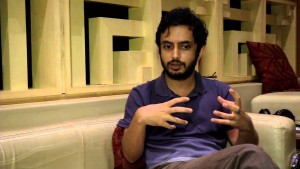
 A natural extension of Amit Trivedi’s rip-roaring soundtrack, and yet it, on its own, raises pulpy, garish visions of a drug-torn Punjab. Much of its narrative is woven around music, either songs or its eclectic little score, which is a leap forward for ‘hard-hitting’ dramas that stubbornly believe in the bleakness of its sounds.
A natural extension of Amit Trivedi’s rip-roaring soundtrack, and yet it, on its own, raises pulpy, garish visions of a drug-torn Punjab. Much of its narrative is woven around music, either songs or its eclectic little score, which is a leap forward for ‘hard-hitting’ dramas that stubbornly believe in the bleakness of its sounds.
Film That Didn’t Deserve Hate: BEFIKRE
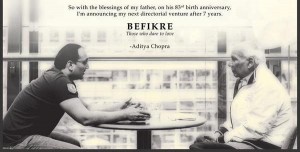 No, this wasn’t a bad film at all, because Aditya Chopra — as deluded as his visions about contemporary romances are — is a good, skilled director. He loves to tell stories, and he does this well; it’s only his interpretation, and his producer-genes, that lets him down.
No, this wasn’t a bad film at all, because Aditya Chopra — as deluded as his visions about contemporary romances are — is a good, skilled director. He loves to tell stories, and he does this well; it’s only his interpretation, and his producer-genes, that lets him down.
Best Ensemble: KAPOOR & SONS (Since 1921)
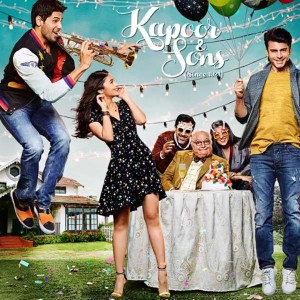 A forcibly cozy cottage in the hills, and yet such controlled chaos in perhaps the year’s most dysfunctional and relatable urban family. This was perhaps a middle-class (or not so much) Dil Dhadakne Do without an absurd climax, with characters that we grow to love, empathize with and hate through the course of its 140 “family” minutes. Lovely performances all around, even by a heavily prosthesized Rishi Kapoor as the cool, bindaas ex-patriarch.
A forcibly cozy cottage in the hills, and yet such controlled chaos in perhaps the year’s most dysfunctional and relatable urban family. This was perhaps a middle-class (or not so much) Dil Dhadakne Do without an absurd climax, with characters that we grow to love, empathize with and hate through the course of its 140 “family” minutes. Lovely performances all around, even by a heavily prosthesized Rishi Kapoor as the cool, bindaas ex-patriarch.
SPECIAL MENTIONS: UDTA PUNJAB, DANGAL
Best Director: Ram Madhvani for NEERJA
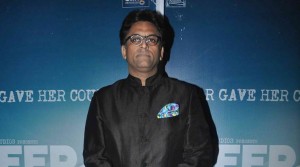 India’s first genuinely successful and comfortably mainstream hostage thriller is the result of ad-man Madhvani’s relentless attention to detail, and his ability to make us all forget that Sonam Kapoor is not known for her acting. A truly dramatic ride, this film, topped off by Ms. Azmi’s tear-jerker of a speech and a feel for good old desi melodrama. The film needed direction and restraint, and there couldn’t have been righter and more sure-footed hands than Madhvani’s.
India’s first genuinely successful and comfortably mainstream hostage thriller is the result of ad-man Madhvani’s relentless attention to detail, and his ability to make us all forget that Sonam Kapoor is not known for her acting. A truly dramatic ride, this film, topped off by Ms. Azmi’s tear-jerker of a speech and a feel for good old desi melodrama. The film needed direction and restraint, and there couldn’t have been righter and more sure-footed hands than Madhvani’s.
Best Cameo: Rajeev Ravindranathan for WAITING
 As the eccentric colleague and typical ‘company representative’ of a man whose wife he must be hospitable towards, Ravindranathan adds a dose of humanity and soul into the inherent awkwardness of his situation. He is heartwarming towards a stricken Kalki, either with his inability to speak openly or with his purpose of intent and politeness about the whole thing. We’ve seen many mechanical men in our peripheral vision like him over the years, but his is the only face in which we’re allowed to look a little deeper.
As the eccentric colleague and typical ‘company representative’ of a man whose wife he must be hospitable towards, Ravindranathan adds a dose of humanity and soul into the inherent awkwardness of his situation. He is heartwarming towards a stricken Kalki, either with his inability to speak openly or with his purpose of intent and politeness about the whole thing. We’ve seen many mechanical men in our peripheral vision like him over the years, but his is the only face in which we’re allowed to look a little deeper.
Best Debutant (Male or Female): Zaira Wasim and Suhani Bhatnagar for DANGAL
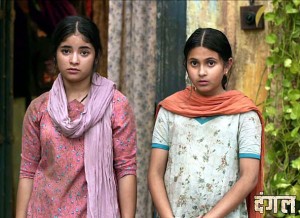 The teenaged versions of wrestlers Geeta and Babita Phogat, daughters of Mahavir Singh Phogat (Aamir Khan), were perhaps the best part of Nitesh Tiwari’s sprawling biopic. They formed the physical and mental backbone of the girls’ eventual resolutions and conflicts, and were perceptive, sharp, funny, endearing and very committed as the ‘begins’ part of the 160-minute film.
The teenaged versions of wrestlers Geeta and Babita Phogat, daughters of Mahavir Singh Phogat (Aamir Khan), were perhaps the best part of Nitesh Tiwari’s sprawling biopic. They formed the physical and mental backbone of the girls’ eventual resolutions and conflicts, and were perceptive, sharp, funny, endearing and very committed as the ‘begins’ part of the 160-minute film.
SPECIAL MENTION: Ria Shukla for NIL BATTEY SANNATA
Best Documentary: FIREFLIES IN THE ABYSS
 Chandrashekhar Reddy’s stark, quiet and extensive exploration of the coal-mining industry in North-East India, loyal to the perspectives of the miners and their small families, is as much a feat of filmmaking as it is an achievement in investigative reportage. With a limited release in July, the documentary opened a few eyes with its innovative eye-of-the-storm narrative and claustrophobic trolley-fastened camera shots of caves and worker conditions.
Chandrashekhar Reddy’s stark, quiet and extensive exploration of the coal-mining industry in North-East India, loyal to the perspectives of the miners and their small families, is as much a feat of filmmaking as it is an achievement in investigative reportage. With a limited release in July, the documentary opened a few eyes with its innovative eye-of-the-storm narrative and claustrophobic trolley-fastened camera shots of caves and worker conditions.

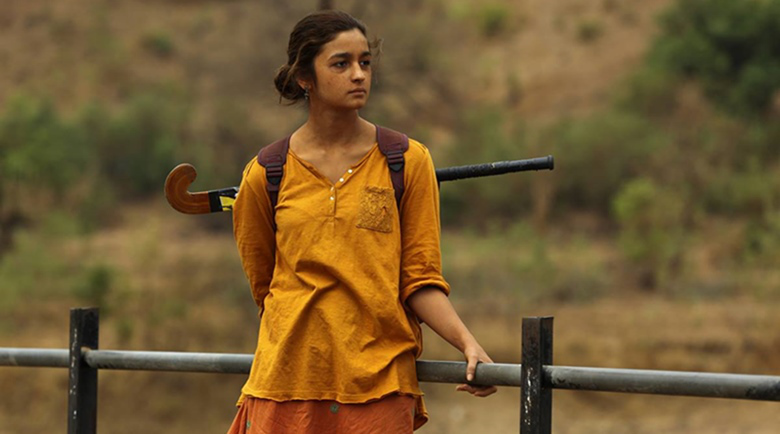





Leave A Comment
You must be logged in to post a comment.